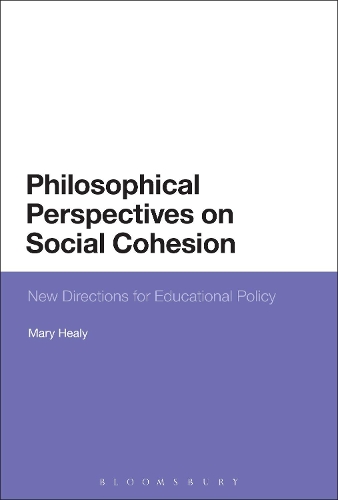
Philosophical Perspectives on Social Cohesion: New Directions for Educational Policy
(Paperback)
Available Formats
Publishing Details
Philosophical Perspectives on Social Cohesion: New Directions for Educational Policy
By (Author) Mary Healy
Bloomsbury Publishing PLC
Bloomsbury Academic
22nd April 2015
United Kingdom
Classifications
Tertiary Education
Non Fiction
Civics and citizenship
370.115
Physical Properties
Paperback
184
Width 156mm, Height 234mm
263g
Description
What would the civic relationship between citizens in a socially cohesive society look like What models might we use to educate young people to support developing these bonds Do these different models have different implications for how we structure the bonds that support a civic relationship Philosophical Perspectives on Social Cohesion challenges the basis of how we characterize civic bonds and how we best organize schools to encourage and develop them. Mary Healy argues that metaphors and social imaginaries often give a framework for considering our interrelatedness. She re-examines the metaphor of fraternity, used as a precursor to elements of the 'Big Society', arguing that such attempts to align fraternity with liberty are mistaken and that equality plays a vital role. At a time of increasing diversity of school provision, this pertinent book indicates the connection between how we organize school structures and the models of citizenship we value.
Reviews
What does 'social cohesion' really mean in Western liberal democracies and, more importantly, what should it ideally mean If we identify the answer to that question, we next need to ask what sort of school structures and educational interventions are required to actualise this ideal. Mary Healy's rich and fascinating study not only sheds new conceptual light on the notion of civic relationships and its dense metaphorical layers, it also offers sensible practical advice to educators and policy-makers on how education for social cohesion can be made into a tangible goal for schooling. * Kristjn Kristjnsson, Professor of Character Education and Virtue Ethics, University of Birmingham, UK *
Written with clarity and commitment, this is not only a timely book, it is also one of enduring significance. In increasingly fragmented and fragmenting times it reminds us of the foundational importance of attending imaginatively, deliberately and insistently to what binds us together as citizens and as human beings in a democratic society. Education has a key role to play here that is not well served by the populist fundamentalism of the market with its inherent capacity for division and exclusion. This book helps us return to fundamentals, to deeper human purposes and more profound views of human flourishing. We would do well to take its arguments and recommendations seriously and attend to their consequences with some urgency. Unless we do so, we will intensify an increasing immiseration of the present; perpetuate an arrogant, ungenerous view of common humanity; and invite a future that is irresponsibly and avoidably careless of what matters most in creating and sustaining democracy as a way of living and learning together. * Michael Fielding, Emeritus Professor of Education, Institute of Education, University of London, UK *
Author Bio
Mary Healy is Senior Lecturer in Education at the University of Roehampton, UK.
